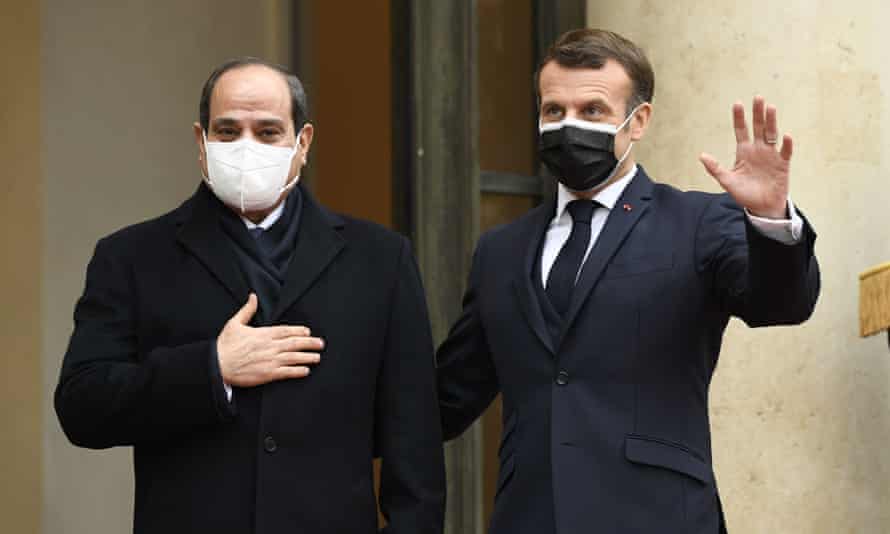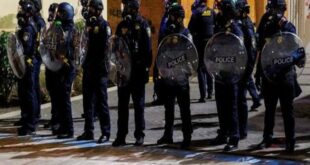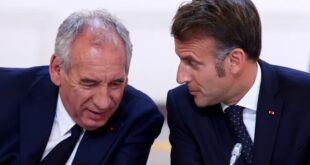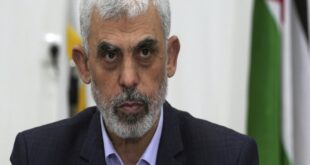
In 2011, I, like most Egyptians at the time, had little hope that Hosni Mubarak’s regime would ever end. His 30 years in power had been set apart by systematic human rights violations. His pathological concern with his own security had given rise to a vast autocratic and bureaucratic state, with little civil or political freedom. Unemployment was high. Wages were low.
Business was controlled by Mubarak’s family and its immediate circle. The police engaged in beatings, sexual abuse, and other forms of torture. Opposition figures were sentenced to years in prison through military courts.
I knew protests against Mubarak’s security establishment were planned when I left Egypt on business on 24 January. I was mostly living abroad at the time, and I thought these protests would come to nothing of significance. But what I read, saw on TV, and heard from friends over the next 17 days changed everything. Millions of Egyptians took to the streets, demanding change, and for the first time in many years, I started to have hope. I began to dream of a better Egypt, and there were many like me: many who had left the public domain and were now heading back to Egypt to play a part in shaping its future.
On my way back, on 13 February, just two days after Mubarak was ousted, all on the plane were full of joy. Everybody was talking to each other; it was like one big family going back home together, full of hope. Passengers clapped when the pilot made the landing announcement and started hugging each other when it stopped. I will never forget that day.
I wanted to help build the new Egypt. I was one of the 100 people elected to form the assembly drafting the new constitution, and I was chosen to be its secretary general. I was appointed minister of planning and international cooperation. The work was varied, but there was much to do and no time to waste. Our aim was to build institutions that would cement the democratic values in which we believed.
The hopes of a decade ago are long gone, shattered by the former army chief who was backed by western powers
Many mistakes were made. It was inevitable after 30 years of political stagnation. And the biggest one was that politicians did not realise they had to remove the deep state, not just its head. But my enthusiasm never dimmed over the next two-and-a-half years – until the army seized back control in 2013. I threw myself into every activity I could. We strove to write a constitution fit for post-revolutionary Egypt, one that would reflect the people’s wishes and do away with the madness of the 1971 document, which gave the incumbent unlimited power and time in office. Nevertheless, there was great tension in the air, and deep division among Egyptians.
I was in Moscow for meetings in 2013 when the Egyptian military gave its 48-hour ultimatum to the government, telling it to “resolve its differences” with protesters, who had been rallying across the country against Mohamed Morsi’s presidency for several days. I knew that what I was hearing were the first tremors of an imminent coup. As I flew back to Egypt, on the evening of 2 July, the mood was despondent – a far cry from the excitement I experienced returning after the revolution against Mubarak. The following day, the military coup was launched by army chief General Abdel Fatah al-Sisi, now Egypt’s president.
Following the coup, I spoke to various delegates from the international community. We, elected politicians of Egypt, were simply told to accept the military coup. I met Catherine Ashton, the high representative of the EU for foreign affairs and security policy. I met William Burns, who arrived a week before Sisi’s forces killed nearly 1,000 people at Rabaa. (Burns is now the nominee to be Joe Biden’s new director of the CIA.) I met many other international delegates. They all said the same thing: “accept reality”. John Kerry, then the US secretary of state, said the military takeover had been done in democracy’s name.
Perhaps the international community was not complicit in the coup, nor the bloodshed that ensued. But it whitewashed the event, and its support for Sisi, then and now, is one of the principal reasons for the endurance of his regime.
Ten years on from the beginning of the Arab spring, the general-turned-president Sisi, endorsed by the free world, has made Egypt almost unliveable. There are more than 60,000 political prisoners. Mass trials and death sentences – including for children – are increasingly common. There is torture, enforced disappearances, extrajudicial killings. There is no free expression, no political space. Women are frequently targeted. Should we “accept” this reality? After all of this, for many, Mubarak’s Egypt now seems like heaven.
The country is united in the belief that if the international community was not responsible for the overthrow of President Morsi, then it is now complicit in the murder, torture, and wholesale abolition of rights that characterise Sisi’s regime. It must accept the part it has played in allowing this to happen. It must know that even if it chooses to look away, the Egyptian people will never, ever forget what has been allowed to happen.
With the benefit of hindsight, everyone now knows that supporting the military coup of 2013 was a mistake. What we needed most of all then was to unite, as a nation, to restore democracy in Egypt, regardless of political difference. Before anything else, we needed to take the democratic path together, arm in arm. And we did not.
But the hope that we all had on the evening of 11 February 2011, when Mubarak was forced to step down, remains. It might look small, but it is there, beneath the surface, in the hearts of the Egyptian people. Given an opportunity, it will one day make itself known, and I believe that day is coming soon. The desire for freedom is strong. It can never be extinguished. This is what history has always told us.

Dr Amr Darrag is chairman of the Egyptian Institute for Studies (EIS) and former minister of planning and international cooperation, Egypt – theguardian.com




 World Opinions Débats De Société, Questions, Opinions et Tribunes.. La Voix Des Sans-Voix | Alternative Média
World Opinions Débats De Société, Questions, Opinions et Tribunes.. La Voix Des Sans-Voix | Alternative Média




